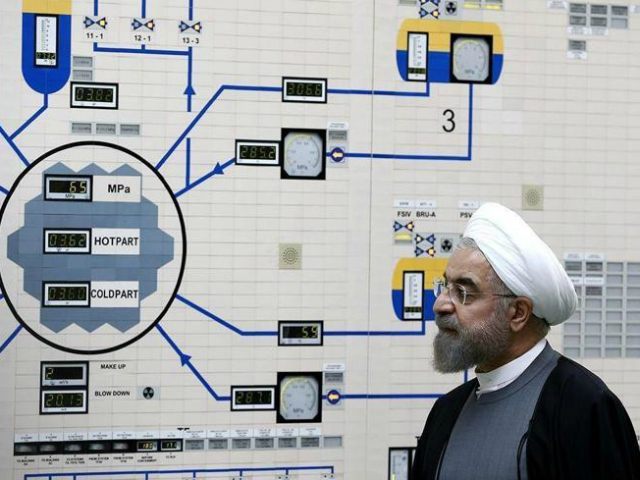REUTERS– A senior Israeli official took a swipe at the United States on Tuesday over Iran’s reported purchase of second-hand civilian aircraft, saying the acquisition violated international sanctions and went ahead despite a tip-off from Israel.
Iranian Transport Minister Abbas Akhoondi was quoted on May 11 by the Iranian Students News Agency as saying Tehran bought 15 used commercial planes in the last three months. He did not say who sold them or how they had been acquired.
A long-standing ban on the export of aircraft spare parts to Iran was eased under an interim nuclear deal between Tehran and world powers in late 2013, but the sanctions regime continues to restrict sales of planes.
“Israel learned from intelligence sources about this very significant breach of the sanctions in advance of it occurring,” the Israeli official, speaking on condition of anonymity, told Reuters.
“We flagged the issue to the U.S. administration,” the official said. “Unfortunately, the deal still went through and there was no success in preventing it.”
In Washington, a U.S. State Department official, speaking on condition of anonymity, said the Obama administration was aware of the report and “if there is sanctionable activity, we will take action”.
He said that while the export to Iran of U.S.-made spare parts needed for safe operations of Iranian civilian airliners was now permitted with a U.S. Treasury Department license, the sale of U.S.-origin aircraft was not.
Iranian officials could not immediately be reached for comment.
But the Iranian state news agency IRNA said on May 12 that Iran’s Mahan Air — which is blacklisted by Washington — recently acquired nine used Airbus commercial aircraft. Airbus, a European consortium, does not sell planes to Iran, and IRNA did not identify who supplied the aircraft.
NUCLEAR NEGOTIATIONS
The Israeli official’s comments appeared to be an attempt to portray the United States as being lax in enforcing current economic restrictions even as it promises to reimpose them if Iran fails to honor terms of a nuclear deal now under negotiation with six world powers including Washington.
Israel views the United States, its main ally, as the lead Western player in the talks and as a watchdog over international sanctions imposed on the Islamic Republic.
Officials in Israel, Iran’s arch regional adversary and widely believed to be the Middle East’s only nuclear power, say Tehran cannot be trusted to honor a nuclear agreement.
The official said the aircraft were sold to an airline that had been blacklisted by the United States “because of its involvement with the Iranian Revolutionary Guards” and Lebanon’s Hezbollah guerrillas. The official did not name the company.
London’s Financial Times reported last week the deal was brokered through a complex series of arrangements with apparently unwitting companies across Europe.
The United States, Britain, China, France, Russia and Germany, are in the midst of negotiations with Tehran to finalize a deal by June 30 aimed at preventing Iran from using its nuclear energy program to develop atomic weapons, in exchange for an easing of sanctions.
Iran denies Western suspicions that it has been seeking to develop a nuclear weapons capability, saying it is enriching uranium only for civilian atomic power.

COMMENTS
Please let us know if you're having issues with commenting.